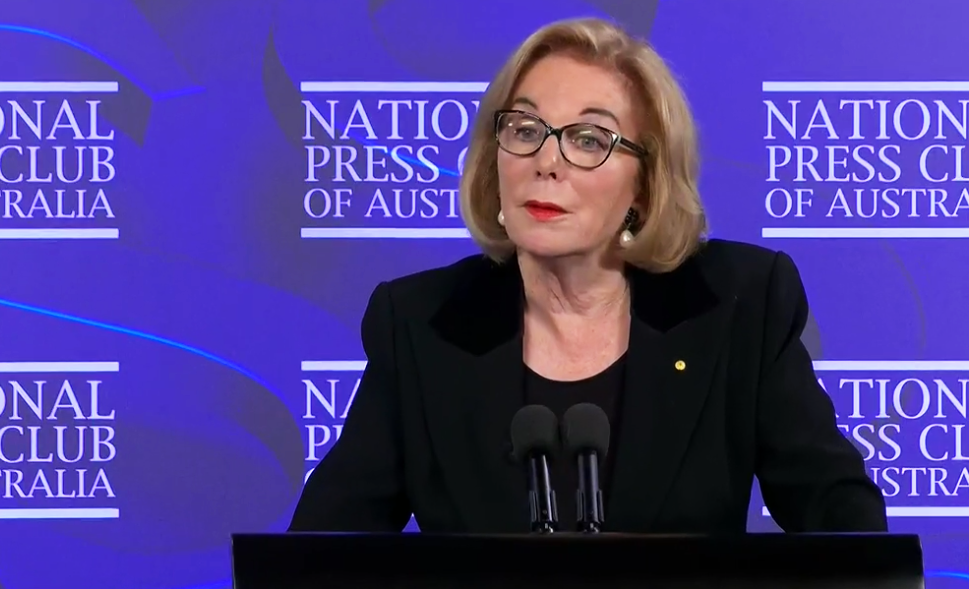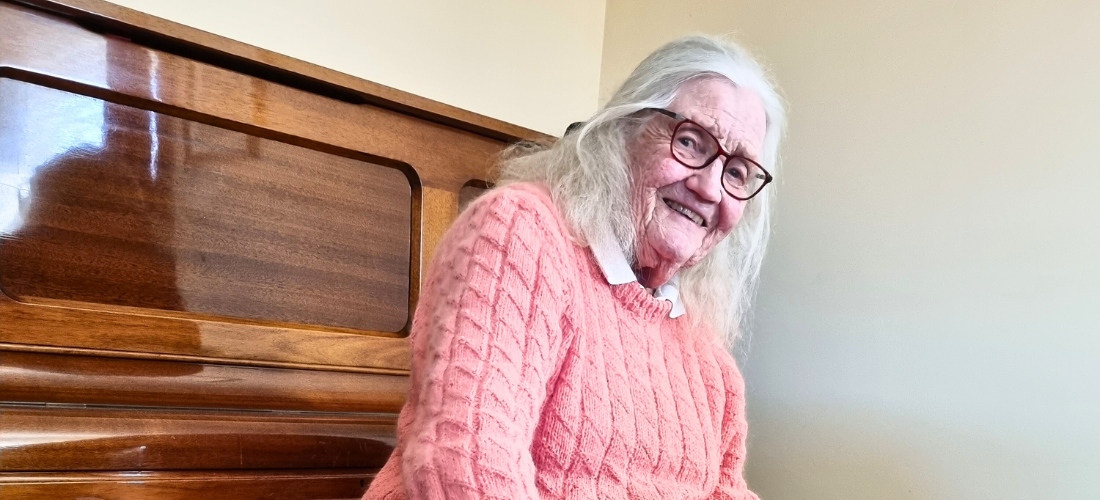Macular disease champion urges Government to reject proposed Medicare rebate cuts
Macular Disease Foundation Australia (MDFA) Patron Ita Buttrose AC OBE has used a nationally televised address to warn the Federal Government about a massive increase in the number of people going blind, if it approves a proposal to slash the Medicare rebate for eye injections.
“This treatment is highly successful in saving sight,” Ita told the National Press Club in Canberra.
“So why has the (Medicare Benefits Schedule) review taskforce recommended a reduction of 69 per cent in the rebate for these eye injections?
It’s a decision I find hard to fathom.
Ita Buttrose
“Out-of-pocket costs for this treatment are already prohibitive.
“Economic modelling commissioned by MDFA predicts the proposed rebate cut will result in out-of-pocket costs increasing from $1,900 to $3,900 a year on average – double for patients needing injections in both eyes.
This translates to an additional 47,000 Australians experiencing severe vision loss and blindness within the next five years.
Ita Buttrose
“This rebate reduction, if approved, will deliver some savings to Government, but will effectively be cost shifting to other parts of the health and welfare system.”
Inaugural Ita Buttrose Oration
Ita’s remarks were made at the inaugural Ita Buttrose Oration. The address was nationally televised by the ABC from the National Press Club in Canberra
The Ita Buttrose Oration is an initiative of MDFA. It is designed to address a range of issues around a vision for a healthy ageing Australia.
The inaugural Oration coincides with the 20th anniversary of MDFA and the launch of Macula Month in May. Macula Month is MDFA’s annual campaign, designed to raise awareness of the risks and symptoms of macular disease.

Much of Ita’s speech focused on the recommendation before the Federal Government to slash the rebate for eye injections. The MBS Review Taskforce’s proposal was one of 19 recommendations in a report to the Federal Government delivered in late 2019. It is still under consideration.
Eye injections are used to treat several blinding conditions, including wet (neovascular) age-related macular degeneration (wet AMD).
Australia is a world leader in the treatment of wet AMD. Patients receive injections to the eye every four to six weeks for an indefinite period, meaning costs can stack up.
Currently, approximately 80,000 vulnerable Australians stop eye injection treatment within five years. While there are many reasons for this, access and cost are two of the primary ones.
Ita said MDFA’s economic modelling forecast the rebate cut would lead to an additional 47,000 people dropping out of treatment, suffering severe vision loss or blindness as a result.
“This would lead to an extra $168 million in direct costs to Government in primary health, mental health care and early admissions to residential aged care,” she said.
“It’s estimated the proposed rebate cut would also lead to an additional $2.6 billion in indirect costs through loss of patient and family carer productivity.”
Reject the rebate cut
Ita called on the Government to reject the recommendation to cut the Medicare rebate for eye injections, and to consider MDFA’s fully costed plans to improve access to sight-saving treatment.
These models can be implemented immediately by leveraging existing systems and infrastructure:
- new low cost-regional clinics, so patients can access treatment without needing to travel to metropolitan clinics that are already at capacity,
- increasing the number of healthcare workers who can give injections under the supervision of qualified ophthalmologists,
- empowering patients to be better informed about fees so they can self-advocate if they can’t afford treatment.
“These models need both Federal and State Government investment. But the cost of doing nothing is much higher. Every 1,000 wet AMD patients left untreated costs the health system $20 million a year,” the MDFA Patron said.
On behalf of MDFA, I call on the Government to reject the recommendation to cut the MBS rebate for eye injections.
Ita Buttrose
“We also ask ophthalmologists to work with the Federal and State Governments, and MDFA representing patients, to increase access to public and bulk-billed treatment in more locations across Australia.
“We simply cannot accept an Australia where we have a gold standard treatment to stop people from going blind, yet there are some Australians who can’t access it.
Australians at risk of losing their vision can’t wait any longer – action is needed now.
Ita Buttrose
The need for research
While eye injections are effective treatment for wet AMD, Ita also highlighted the need for Australia to invest in research and treatments for other macular diseases, including dry (atrophic) age-related macular degeneration.
“Research is costly but doing nothing will cost much more. The Federal Government through the National Health and Medical Research Council (NHMRC) regularly funds AMD research but this varies from year to year.
“The generosity of the community allows the Foundation to also award research grants. We recently received a bequest of $1 million, which has allowed us to establish a new research funding stream.”
Low vision supports
Ita’s speech also called out inequities between support for low vision received under aged care, when compared with the NDIS.
“A new report (released in March 2021) comparing aged care and NDIS support revealed that older Australians in aged care receive an average of $35,000 per year less than those with similar impairments on the NDIS,” Ita said.
“In one example, a 63-year-old vision-impaired man on the NDIS is receiving $86,000 a year more in government assistance than an 84-year-old man with similar issues on an aged care home support package.
“Many aged care packages require co-payments, with caps on funding, yet there are no co-payments or limits once a person qualifies for NDIS support.
“It seems inexplicable and unfair. Age discrimination in accessing disability support must stop.”
Posted: 5 May 2021
















